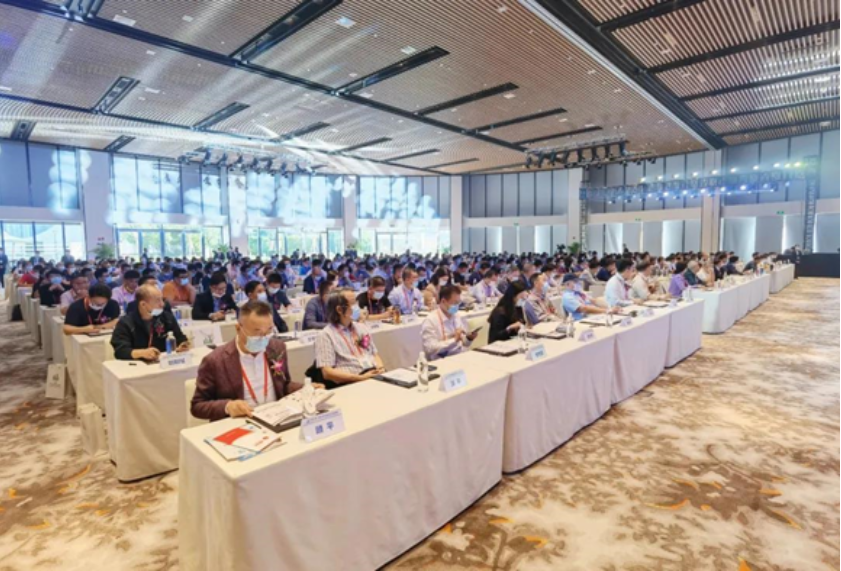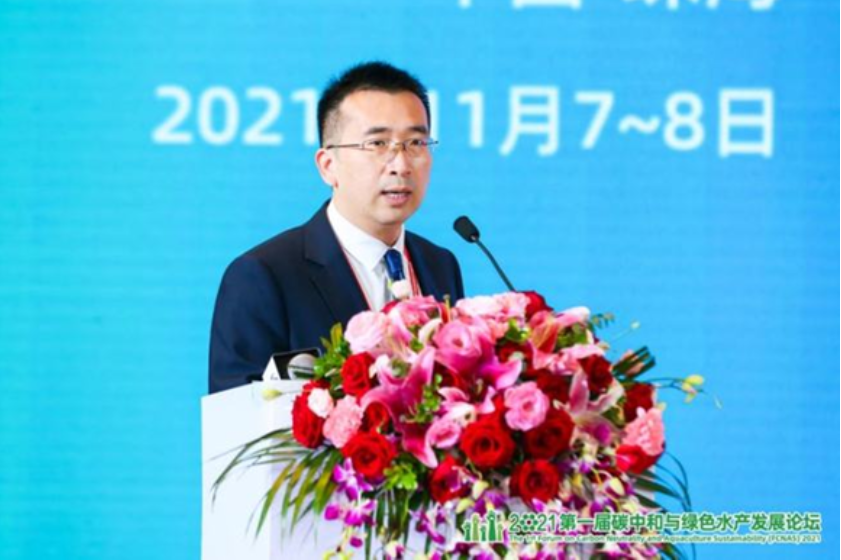
Disruption caused by extreme and unpredictable weather not only challenges ingredient availability and animal health, but it also heightens an emphasis on sustainable, environmentally conscious agricultural production. As the largest aquaculture producer in the world, which accounts for nearly 60% of global aquaculture production, China's aquaculture industry is taking action as a whole to drive decarbonization efforts to tackle global climate challenges. Jointly organized by the Chinese Fishery Association, World Wide Fund for Nature Beijing Office, and Guangdong Nutriera Group in Zhuhai, Guangdong, China on November 7-8, 2021, the 1st Forum on Carbon Neutrality and Aquaculture Sustainability (FCNAS) gathered together over 600 industry experts and peer leaders to co-design carbon solutions and the sustainable development of aquaculture in China. China’s aquaculture value chain: Tackling climate challenges as a whole Aquaculture has huge potential to feed the world while increasing carbon sequestration capacity and driving negative emissions. In 2018, both marine aquaculture and freshwater aquaculture in China had helped to remove over 3.5 million tonnes of carbon from water through the ways of converting them into nutritional seafood. In 2020, the numbers for freshwater aquaculture had increased to 2.35 million tonnes for carbon removal and 3.29 million tonnes for carbon sequestration in sediments of lakes, following the accelerating of some breakthrough technologies in aquaculture production. The FCNAS 2021 emphasized the role of the whole value chain in innovation and collaboration to tackle challenges and create value. Industry experts and peer leaders discussed technologies, innovations, and practical progress in new carbon solutions from alternative raw materials, feed technologies to aquaculture, seafood processing, and consumer markets. The keynote speeches covered marine negative emission technologies, alternative feed ingredients, algae as carbon capturer in the water system, the production of low-carbon aquafeed, solutions to improve water quality, wastewater treatment and recycling, fish health and well-being, seafood and food security, precision farming, AI equipment and digital tools, cold chain logistics and retails, etc.

Photo: The FCNAS 2021 gathers together over 600 industry experts and peer leaders in China[/caption]
Experts agreed that collaboration and multifold actions across the value chain are needed to deploy, validate and expand critical breakthrough innovations and technologies in developing a negative-emission aquaculture future. China’s action and experience will promote the sustainable development of aquaculture in other parts of the world.
The live streaming of FCNAS 2021 also attracted over 200,000 online audiences with the support of industrial media.
FAMSUN: The feed industry could be an important contributor to carbon-neutral aquaculture
Most aquaculture emission comes from aquafeed. As a leading solution provider of aquafeed manufacturing and a company that supports the United Nations Sustainable Development Goals (SDGs), FAMSUN is committed to combating climate change by innovating technologies and solutions to minimize the footprints and resources consumption in its customers’ production systems.
Dr. David Ma, Senior Aquafeed Specialist and Vice President of FAMSUN R&D Institute, was invited to make a keynote speech on The Development of Low-Carbon and Sustainable Aquafeed Manufacturing Technologies at the FCNAS 2021. FAMSUN makes researches on low-carbon and sustainable aquafeed processing technologies and equipment along the value chain from raw material to finish products.
The current global soybean supply chain has put high soybean protein aquafeed at great carbon emission risk. Researchers and feed formulators have found many new proteins in nature and in the labs to alternative soybean meal in aquafeed. However, their high anti-nutritional factor contents and the unknown impacts of these new alternatives on aquafeed production capacity and finished product quality such as nutrition, bulk density, and water stability have limited the scaling of these alternatives in aquafeed production.
[caption id="attachment_9035" align="aligncenter" width="841"]
Photo: Dr. David Ma of FAMSUN is making a keynote speech at FCNAS 2021[/caption] In his speech, Dr. Ma introduced the research progress, study cases, and practices data of FAMSUN and its partnering feed mills. FAMSUN introduces online coating technology to pretreat new alternative proteins with special enzyme preparation, which helps to improve the performance of the novel ingredients in processing and create high-quality aquafeed products. On the other hand, FAMSUN’s new precise extrusion control technology allows an extruder to process a wide range of ingredients in diverse characteristics. By incorporating leading online viscosity detection technology and researching the rheological properties of feed melt, FAMSUN develops the self-adjusted AI extruder. The intelligent machine can adjust processing parameters automatically according to the ingredients in feed formulas and achieve the best production performance. Dr. Ma also introduced FAMSUN’s other carbon solutions such as AI processing machines, high-automatic production lines, FMES manufacture execution system, and digital feed mill. The new solutions can help the aquafeed industry access advanced productivity while operating in the responsible consumption and sustainable production pattern. “FAMSUN will continue to take our advantages and expertise in feed milling and our strong abilities in the application of digital technology, artificial intelligence, and Industrial Internet to create innovative solutions that use green energy in production, reduce, reuse, and recycle water, energy, and materials in feed production, while eliminating waste and pollution and promoting safe, healthy, transparency and traceability in our value chain.” Dr. Ma said. |Source: Online/KSU
Comment Now